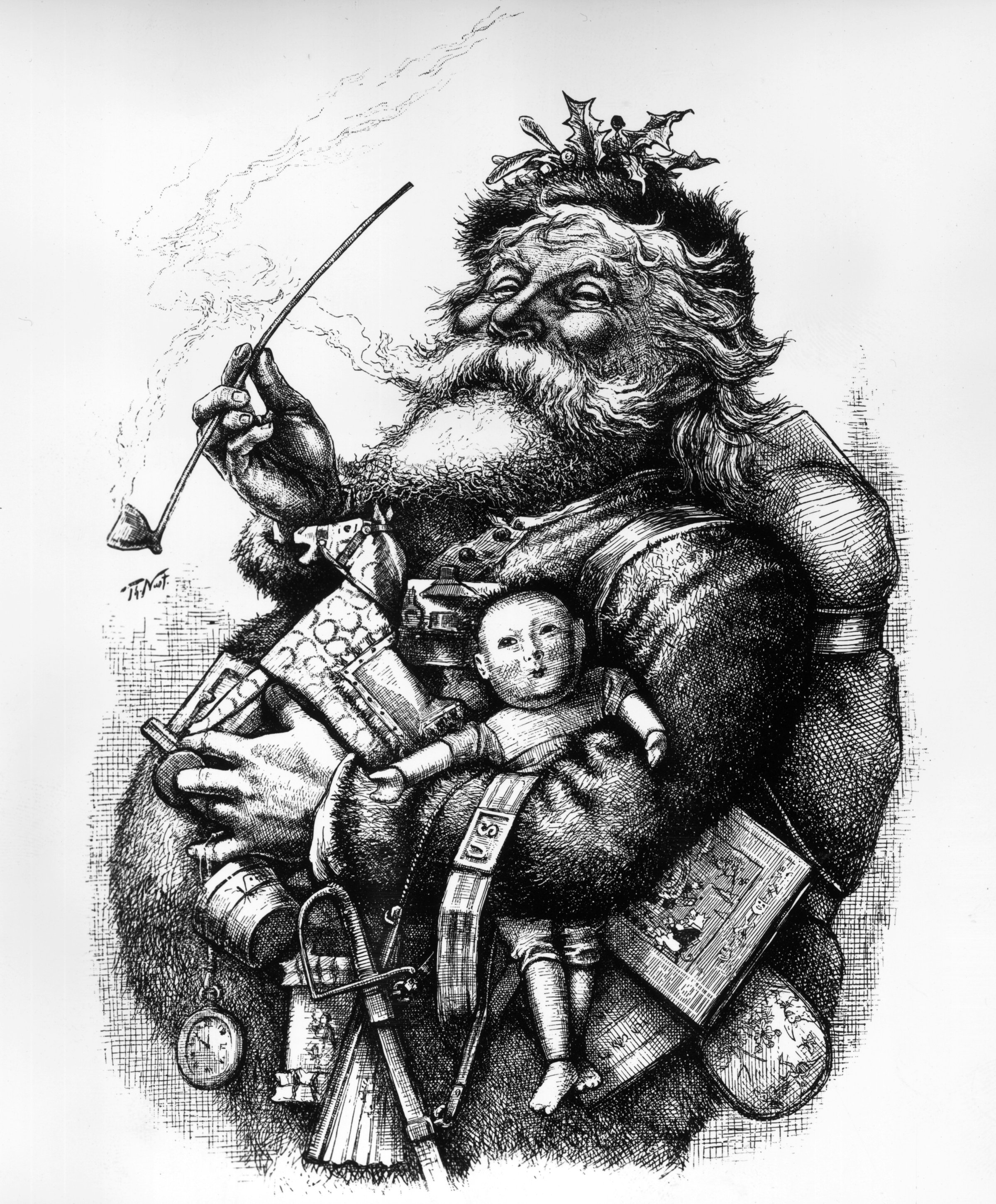
The custom of celebrating the birth of Jesus Christ is not exactly a new one for Christians around the world: the holiday is believed to date back to Dec. 25, 336 A.D., in Rome. But in the U.S., Christmas was not officially a federal day off from work or a break from mail delivery until 1870.
In fact, though the term may be used freely, Christmas isn’t really a “national” holiday in the U.S.; rather, it is a federal holiday and a holiday in the states. Neither the President nor Congress exercises the power to declare a holiday that would apply to everyone in all of the states at once, the Congressional Research Service points out.
Still, that doesn’t mean the U.S. has historically been unenthusiastic about Christmas. The Puritans banned Christmas celebrations, but by the time the holiday was made a legal one in addition to a religious one, Americans were already a notably Christmas-celebrating group.
Several older, highly industrialized states declared Christmas a legal holiday in the mid-19th century. Massachusetts makes a good case study: with burnout rates skyrocketing during the Industrial Revolution, one state legislator argued that the lack of leisure time was literally killing workers. So, though Massachusetts had had a state-supported church until 1833 and it’s likely that many workers in the predominantly Christian society would have taken the day off anyway, the effort to pass the law came from commercial lobbies rather than religious groups.
“When that legislature declared Christmas to be a legal holiday, they included a proviso that, when Christmas happened to fall on a Sunday, the following Monday would become the legal holiday. They did the same thing with Washington’s Birthday, which had never been a holiday before,” says Stephen Nissenbaum, author of The Battle for Christmas: A Social and Cultural History of Our Most Cherished Holiday. “Opposition to the bill focused on the Washington’s Birthday provision, presumably because it was politically easier to attack.”
Finally, on June 28, 1870, toward the end of the legislative session, President Ulysses S. Grant signed into a bill designating Christmas a legal, unpaid holiday for federal employees in the District of Columbia.
Get your history fix in one place: sign up for the weekly TIME History newsletter
The legislation also included holidays like the Fourth of July and New Year’s Day. Such holidays were later extended to federal employees outside of D.C., but a provision making sure they got paid on those days didn’t exist until 1938. According to congressional records, the 1870 law was instigated by area “bankers and business men” who wanted certain holidays to be formalized. Though it might have stood to reason that such a bill might provoke debate about hot-button issues like the separation of church and state, there was no notable debate on the bill in committee. (“One could argue that giving federal workers the day off, which is all the federal holiday does, does not ‘support’ any religion — it doesn’t require anyone to do anything religious, it just says the office won’t be open,” says Douglas Ambrose, a professor of history at Hamilton College and an expert in Christianity in early American history.)
But some historians argue that Christmas in the U.S. isn’t really about any law at all.
Rather, the idea that Christmas is a national American holiday may have been a matter of the widespread appeal of certain practices that spread in the 19th century, such as writing Christmas cards, decorating Christmas trees — a custom from Victorian England that was introduced to Americans by popular magazine Godey’s Lady Book — and telling children about Santa Claus, who was depicted by the era’s famous political cartoonist Thomas Nast in Harper’s Weekly. Though some have theorized that the law was meant to unite North and South during the height of the Reconstruction period after the Civil War, the northern publishing houses that produced Christmas imagery and circulating the latest customs and traditions led the charge for the holiday, argues Penne L. Restad, author of Christmas in America: A History and a senior lecturer at the University of Texas at Austin.
While a day off from work was important, that wasn’t the only purpose of Christmas during that rapidly changing time. Christmas customs encouraged a sense of community and unity at a time when urbanization, industrialization and the memory of the recent Civil War had made many people feel more unsettled than ever, says Restad. Unsurprisingly, Thanksgiving’s place as a federal holiday dates to the same era. During that time, people across the nation sought to impose order on a confusing world, from time zones to department stores. One result of that effort was an expanding sense of what America meant.
“This idea of creating a nation becomes important,” Restad says.
And Christmas was part of how the nation came to be.
More Must-Reads from TIME
- Donald Trump Is TIME's 2024 Person of the Year
- Why We Chose Trump as Person of the Year
- Is Intermittent Fasting Good or Bad for You?
- The 100 Must-Read Books of 2024
- The 20 Best Christmas TV Episodes
- Column: If Optimism Feels Ridiculous Now, Try Hope
- The Future of Climate Action Is Trade Policy
- Merle Bombardieri Is Helping People Make the Baby Decision
Write to Olivia B. Waxman at olivia.waxman@time.com